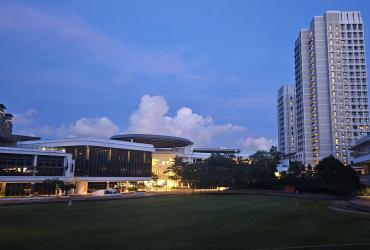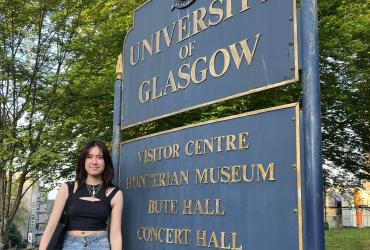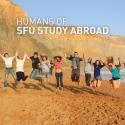Financial Preparation
For financial preparation, I relied on my personal savings and the income from a co-op term I completed right before my exchange. Additionally, I applied for and received SFU bursaries to support my study abroad experience. Careful budgeting for living expenses, travel costs, and academic materials ensured I could manage my finances effectively while abroad. To facilitate this, I opened a Hong Kong bank account, which helped in getting cash as Hong Kong is heavily cash-reliant, and to anticipate foreign currency needs for countries I planned to visit while abroad.
Packing
For packing, I ensured I had all travel essentials, including my laptop, universal adapters, and foreign currency, as well as CAD and USD for emergencies. It took several weeks to pack as I carefully selected clothes and shoes suitable for the climate and my activities abroad. Additionally, I brought important documents such as my passport and the required student visa for Hong Kong.
Travel and Transportation
I booked my flight to Hong Kong a month prior to my exchange, after securing accommodation in a dorm room. Upon landing at Hong Kong International Airport, I purchased an Octopus card. This card is similar to Vancouver's Compass card, which can be used to pay for public transit like the MTR or buses. However, it can also be used as payment at restaurants and shops. It functions like a prepaid debit card and is widely accepted in Hong Kong. After that, I took a taxi straight to my dorm room. Taxis in Hong Kong generally accept cash only, so it's crucial to have cash prepared on hand. Uber is also available in Hong Kong, so if you don't have cash, that is another option.
Preparation Tips for Future Students
Networking and Social Activities:
Take advantage of HKU's orientation programs tailored specifically for exchange students at the beginning of the semester. These events are designed to help you meet fellow exchange students and build lasting friendships. Additionally, participate in events organized by HKU dormitories, such as the High Table Dinner, where residents gather for meals. These gatherings provide opportunities to meet students living in the same accommodation and foster a sense of community.
Cultural Preparation:
Consider enrolling in Cantonese or Mandarin language classes offered by HKU if you are not proficient in Chinese. These classes not only enhance cultural immersion but also facilitate daily interactions. Embrace the local custom of sharing limited space by being open to sitting with strangers in restaurants, as table spacing is often limited due to small dining areas in Hong Kong. Lastly, carry tissues with you, as restaurants typically do not provide them, ensuring you are prepared for everyday situations. These preparations will help you integrate smoothly into HKU's vibrant community and make the most of your exchange experience in Hong Kong.
















